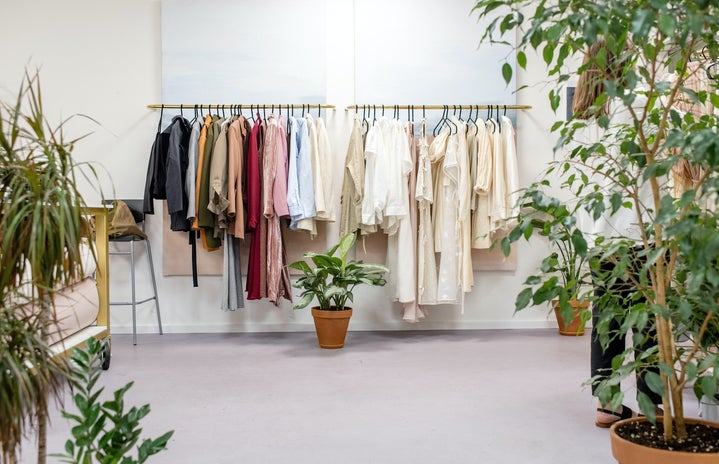Ethical consumption encompasses various terms such as: sustainable, moralistic, green, organic, and fair trade consumption.
To me, it means shopping with a purpose that addresses our ethical concerns. It can be seen as a form of action-at-a-distance. Consider how it makes you feel when you actively choose to buy a shampoo bottle made from recycled plastic or a shampoo bar instead of a regular bottle. It’s like you’ve done a good deed for the day, right? You’re not alone in feeling this way. However, there is a cynical side to ethical consumption—it can sometimes seem too good to be true. Can anything truly be 100% ethical? Let’s explore what it means for retail to consume ethically.
While it’s true that the consumption landscape is changing and we are seeking ‘better’ products, often aligning ourselves with brands that share our values, it can still be challenging for consumers to ensure that we consume retail goods 100% ethically in our everyday choices.
When we think about simple economic transactions that don’t appear to have any negative ethical impact on the surface, if we dig deeper, we often find some form of exploitation along the way. Societal norms play a role in our daily consumption habits. For example, when buying a coffee, do we always consider the origin of the coffee beans? Are there any instances of forced labor or debt bondage within the supply chain? Do we think about the environmental impact of using a disposable paper cup and how the farmers are treated? It can be overwhelming to consider the ethical implications of every single purchase.
To consume retail 100% ethically, we all need to shift our societal mindset and change our single-use, throw-away culture. Nowadays, consumers have increasing expectations for brands to meet ethical standards. However, it is becoming more expensive for brands to maintain these standards while keeping products affordable. The cost of living crisis is fundamentally reducing consumers’ purchasing power, causing them to opt for cheaper, less ethical alternatives. In the current climate, it is not always accessible for people to choose the more ethical and sustainable option.
In our society, we are interdependent with one another and the planet. Therefore, it is important for us to adopt a collective mindset to ensure equity, even though it can be challenging within our capitalist society. Fortunately, there are movements and collectives that are assisting businesses and consumers in achieving this goal.
The B Corp movement plays a key role in enabling global companies to prioritize the triple bottom line, which includes people, planet, and profits. By establishing standards, B Corps encourage businesses to consider the social and environmental impact of their operations. In the UK alone, there are 1,500 registered B Corps working towards preventing social and climate catastrophes. Movements like this encourage consumers to trust brands, knowing that these brands share similar values with us makes us more likely to buy from a brand with this label. Make sure to look for products that are part of B Corp when you next go shopping, you can even use their website to find brands and make an active decision when you next have to buy your mum a birthday present.
While it may not be physically possible for us to know if the retail products we consume are 100% ethical, as consumers, we can take steps towards closing the loop. For example, if we want a new top for going out to parties or just to hang out at Senate House whilst pretending to do work, we can explore options like Vinted or Depop, go charity shop shopping, and make it a fun day out. By making smarter decisions in our everyday lives, we can contribute to making a positive impact. It’s important to not become fixated on being a perfect consumer because perfection doesn’t exist. As long as we avoid excessive consumption and refrain from buying clothes from ASOS every week, I think you’re doing pretty well.


